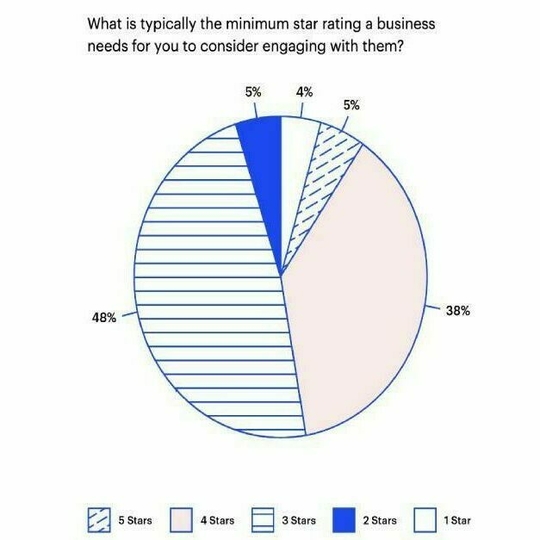
The State Of Data-Driven Marketing In 2023
In this article, we will take a look at the state of data-driven marketing in 2023 and how it is transforming the marketing landscape.
Read MoreAt [B]RIGHT, we illuminate data-informed digital solutions to help your brand succeed in an increasingly complex marketing landscape. Which means we help brands grow based on data, research, and a hefty dose of proven processes, tactics, and channel-specific strategies.
We take the guesswork out of your marketing strategy.
The Stories You Have to Read:

This month an anonymous hacker has leaked the entirety of the Twitch platform including source code, user payout information, and encrypted passwords. VGC (Video Games Chronicle) dug deeper and has verified the mentioned 125 GB torrent link posted to 4chan was indeed Twitch and users’ private data.
A Twitch representative confirmed that a breach has taken place, telling VGC that their teams are “working with urgency to understand the extent of this. We will update the community as soon as additional information is available. Thank you for bearing with us.”
According to VGC the Twitch breach includes:
On October 13th, the FTC issued a Notice of Penalty to 700 companies representing top advertisers, leading retailers, top consumer product companies, and major advertising agencies. The Notice of Penalty aimed to deter any entity from wrongfully using endorsements to deceive consumers. Some examples from prior FTC rulings include misrepresenting whether an endorser is an actual, current, or recent user of a product or service and misrepresenting the experiences by the endorser, if those experiences do not reflect what a consumer could typically expect with the same product or service.
It appears that the FTC is taking aim at some practices that have been adopted by brands and agencies on social media, such as using paid influencers, brand endorsements, exaggerated product reviews and/or product video demonstrations in exchange for free products or compensation. Advertising efforts on social media have certainly muddied the waters and made it harder to separate authentic content and reviews from promotional content that is disguised as trustworthy information coming from a favorite online personality.
Instagram Reels was launched earlier this year as a response to the growing interest in short-form video content popularized by TikTok. Now that the Reels format has gained traction and appears to be here to stay, Facebook is now including the Reels ad placement in its marketing API, allowing third-party platforms to create and deliver Reels ads from their own platforms that will display alongside relevant Reels videos. This update is coming just in time for the holiday season and will give brands more opportunities to experiment with their advertising and placements.
A recently published study by a team of Spanish and Austrian computer scientists has demonstrated that it is possible to target advertising to a single individual using Facebook’s “interest-based” advertising tools. For some marketers, the idea of microtargeting advertising to select audience segments is nothing new, and to some ad specialists the idea of nanotargeting has always seemed feasible. The study was conducted between October and November of 2020, utilizing 21 ad campaign tests that targeted three of the authors of the research paper to prove that nanotargeting users is possible. This was achieved using a combination of interest-based targeting options in combination with demographic and location data points.
This experiment is just one example of how the Facebook advertising platform can be exploited to advertise to a specific user and could be utilized for more malicious intentions. These findings could incite lawmakers to impose more restrictions on behavior-based advertising, an ongoing topic of debate among parties concerned that these tools could be used to spread misinformation, propaganda, or ideologies that could cause societal harm.
Podium, a texting-based review generation service, conducted a series of surveys last fall to deliver their 2021 report on the State of Reviews. They have uncovered some interesting behavioral insights into consumer interactions with local businesses based on online reviews. The survey included 1,543 consumer respondents aged 18+ across the entire US and a separate survey to 455 small business owners and 378 enterprise-level business leaders and managers with local presence.
When discovering local businesses, 88% of consumers are influenced by reviews found online, and Google is more than twice as likely to be used than any other business directory site. Online reviews are visited often on those services, with 65% of respondents saying they have read an online review in the last week and 46% having read a review in the past three days. Although reviews are influential and frequented often by consumers, customers do not leave online reviews very often. Eighty-one percent of the respondents stated they leave only four reviews or fewer over the course of a year.
When considering a local business to patronize, reviews were ranked as the fourth most important characteristic with location, pricing or promotion, and personal recommendations ranking incrementally higher. Over half (58%) of respondents stated they were willing to travel farther and pay more to visit a business with better reviews. The threshold of review ratings is just as important as having recent reviews, with 38% of respondents stating that they require at least an average rating of four stars before considering engaging with a business and 83% stating that the reviews need to be more recent and relevant for consumers to care about them.

Spaces is Twitter’s latest livestreaming feature that is audio-only broadcasting, following the increased usage of this medium popularized by competitor app Clubhouse and other social media apps. Twitter aims to pull users to the platform by investing in content creators with its Spark Program, a three-month accelerator initiative intended to provide financial, technical, and marketing support to chosen participants. The Spark Program pays $2,500 per month and includes ad credits for promoting their audio broadcasts and exclusive Spaces swag. The caveat of the program is that it is focused on existing creators, which could attract creators from other platforms and potentially bring audiences with them. As a means to continue the traction that the Spark accelerator program may bring, Twitter has launched a range of creator monetization initiatives to facilitate the growth of their content ecosystems and to attract the best talent aligned to their app.
TikTok continues to update its platform to persuade marketers of its viability as a brand-safe platform on which to advertise and drive e-comm sales. This month, at the inaugural TikTok World event, they announced the rollout of improved brand safety filters that align with the Global Alliance for Responsible Media’s (GARM) brand safety and suitability framework, filters that give advertisers more control over where their ads run on the platform. Other measures are being proposed that could improve brands’ ability to run ads nearer to relevant content. Also announced during the TikTok World event were tools to help brands find creators relevant to their niches, added measurement tools for determining influencer campaign effectiveness, improved ad reporting, and shopping features for in-app purchases.
Thanks for reading this month's marketing and tech-related news. We found these articles insightful and helpful in navigating the changing marketing landscape and hope they are of value to you too.
Until next time.
Seth Slone | Digital PM

In this article, we will take a look at the state of data-driven marketing in 2023 and how it is transforming the marketing landscape.
Read More
Marketers need to be agile and proactive in their planning, adapting to the changing landscape and staying ahead of the competition.
Read More
The marketing landscape in 2022 saw the continuation of several key trends, including the growing importance of data-driven marketing, the rise of e-commerce and the increasing dominance of digital channels.
Read More